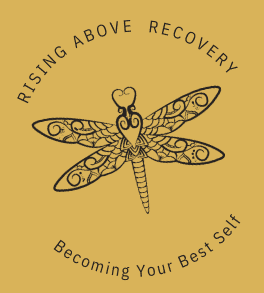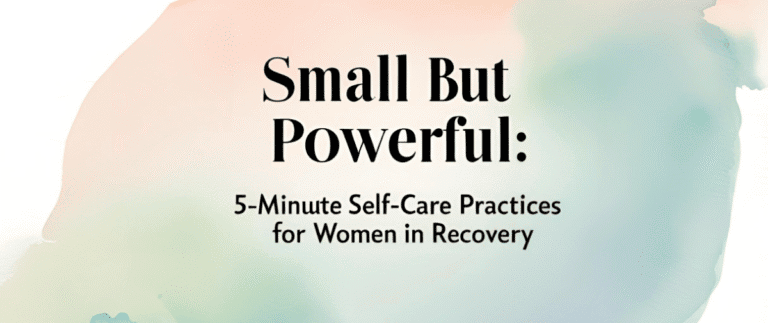Early recovery is a time of transformation, growth, and self-discovery. It’s also a period where self-care is not just important—it’s essential.
When you’re healing from addiction, taking care of yourself goes beyond avoiding substances; it means nurturing your mind, body, and spirit so you can build a solid foundation for lasting recovery.
Self-care isn’t selfish—it’s survival. It’s the key to preventing burnout, managing stress, and maintaining emotional balance. But how do you know if you’re genuinely taking care of yourself?
A great place to start is by asking yourself some honest questions. Your answers will help you assess your self-care level and determine what changes might be needed.

The Power of Honest Self-Reflection
Recovery is a journey that requires self-awareness. There may be times when you feel lost or overwhelmed, but those moments can be growth opportunities.
It’s not always easy to admit when something needs to change, but the first step is being brutally honest with yourself. Let go of any judgment—there are no right or wrong answers here. Just awareness can lead to transformation.

12 Questions to Assess Your Self-Care
Take a moment to reflect on each of these questions. Be honest with yourself, and don’t feel ashamed of your answers. Awareness is the first step toward change.
- Do you allow yourself time to rest and recharge without feeling guilty?
- Are self-care activities (like exercise, relaxation, or hobbies) a priority in your daily life?
- Do you know the difference between self-care and self-indulgence?
- Do you believe you deserve to take care of yourself?
- Can you slow down without feeling anxious or guilty?
- Do you acknowledge and prioritize your personal needs and desires?
- Do you struggle to say no, even when you need to protect your energy?
- Are you doing things out of obligation that leave you feeling exhausted and resentful?
- Are you constantly feeling depleted or emotionally drained?
- Do you often feel overwhelmed and stressed?
- Are you frequently tired and lacking energy, no matter how much you sleep?
- Do you turn to unhealthy coping mechanisms, like junk food, to deal with stress?
If you answered “yes” to several of these, you may need to make self-care a bigger priority in your recovery journey. Remember, self-care isn’t about luxury—it’s about necessity.

Physical Self-Care
Taking care of your body is crucial, especially after the toll addiction may have taken. Your body is healing, and it needs proper nourishment and rest. Here are some ways to prioritize physical self-care:
- Eat a balanced, nutritious diet to fuel your body.
- Stay hydrated by drinking enough water each day.
- Engage in regular physical activity, even if it’s just a short walk.
- Prioritize quality sleep to help your body recover.
- Treat yourself to a massage or other relaxation techniques.
- Practice yoga or meditation to manage stress.
- Learn to set limits and say no when needed to protect your well-being.

Mental and Emotional Self-Care
Your thoughts and emotions have a huge impact on your recovery. Developing healthy mental habits can help you stay strong and resilient. Here’s how:
- Keep a journal to process your thoughts and emotions.
- Practice mindfulness or meditation to stay present.
- Read books that inspire and uplift you.
- Recognize negative self-talk and reframe it with positive affirmations.
- Honor your emotions instead of suppressing them.
- Allow yourself to feel and express your emotions without guilt.
- Surround yourself with people who uplift and support you.
- Set boundaries to protect your peace and well-being.

Spiritual Self-Care
Spiritual self-care isn’t necessarily about religion—it’s about connecting to something greater than yourself. It helps you find meaning and purpose in your recovery. Consider these practices:
- Spend time in nature to feel grounded and connected.
- Listen to music that soothes your soul and lifts your spirit.
- Watch the sunrise or sunset as a moment of reflection.
- Engage in prayer, meditation, or personal rituals that bring you peace.
- Practice gratitude by acknowledging the good in your life.

Why Self-Care Matters in Early Recovery
You can’t pour from an empty cup. If you’re constantly giving to others or running on empty, your recovery will suffer. Self-care isn’t a reward you earn—it’s a necessity.
When you take care of yourself, you’re better equipped to handle challenges, manage stress, and build a life that aligns with your values.
Recovery is about learning to love and respect yourself. It’s about understanding that you are worthy of care, rest, and joy.
If you’ve spent years neglecting yourself, it’s time to change that. Your well-being matters.

Final Thoughts
Assessing your level of self-care isn’t about feeling guilty or ashamed—it’s about awareness and action. Wherever you are in your recovery journey, you deserve to feel nurtured, valued, and strong.
So, take a deep breath, reflect on your answers, and start making the changes you need to take care of yourself. Because the stronger you are, the stronger your recovery will be. And you are worth it.





